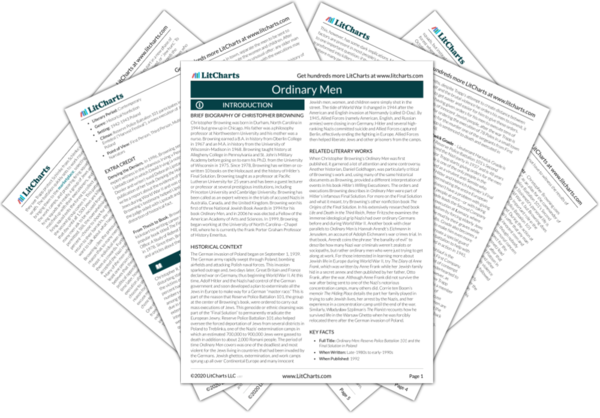Judenjagd Quotes in Ordinary Men
But the “Jew hunt” was different. Once again they saw their victims face to face, and the killing was personal. More important, each individual policeman once again had a considerable degree of choice. How each exercised that choice revealed the extent to which the battalion had divided into the “tough” and the “weak.” In the months since Józefów many had become numbed, indifferent, and in some cases eager killers; others limited their participation in the killing process, refraining when they could do so without great cost or inconvenience. Only a minority of nonconformists managed to preserve a beleaguered sphere of moral autonomy that emboldened them to employ patterns of behavior and stratagems of evasion that kept them from becoming killers at all.
Though the “Jew hunt” has received little attention, it was an important and statistically significant phase of the Final Solution. A not inconsiderable percentage of Jewish victims in the General Government lost their lives in this way. Statistics aside, the “Jew hunt” is a psychologically important key to the mentality of the perpetrators. Many of the German occupiers in Poland may have witnessed or participated in ghetto roundups on several occasions—in a lifetime, a few brief moments that could be easily repressed. But the “Jew hunt” was not a brief episode. It was a tenacious, remorseless, ongoing campaign in which the “hunters” tracked down and killed their “prey” in direct and personal confrontation. It was not a passing phase but an existential condition of constant readiness and intention to kill every last Jew who could be found.












